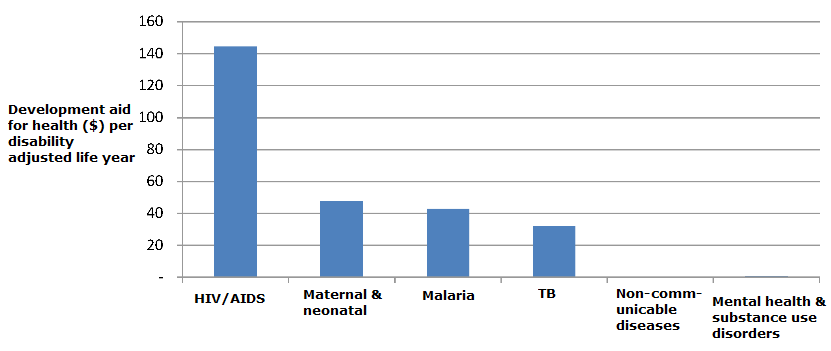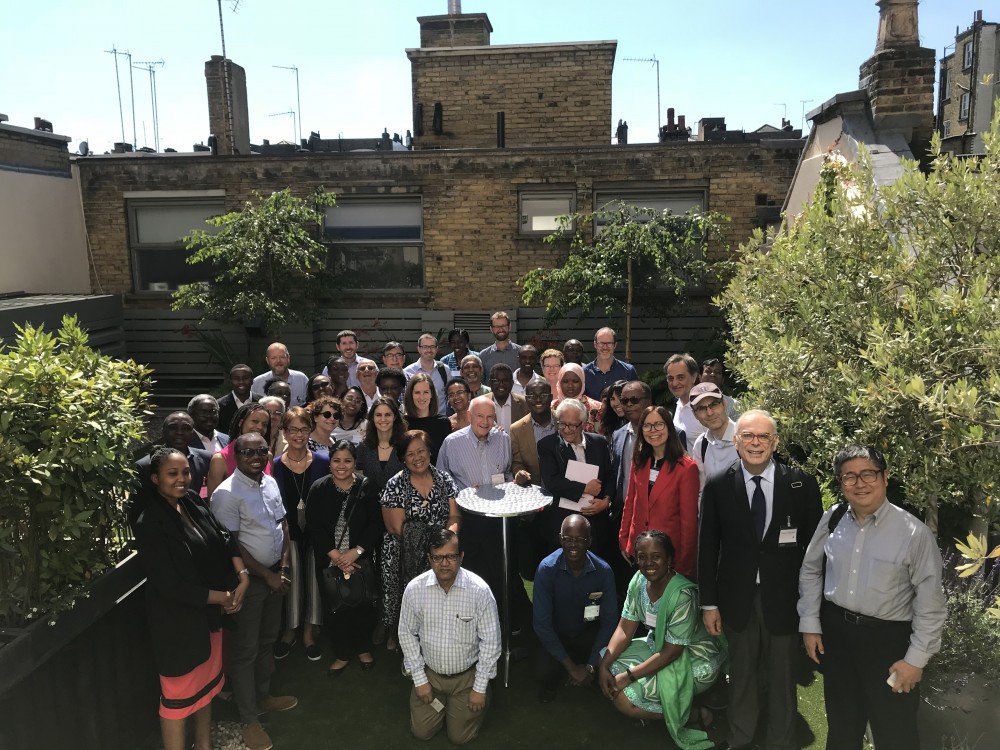No country in the world achieves parity when it comes to mental health care standards. Data from the World Mental Health surveys indicates only 1 in 10 people worldwide diagnosed with an anxiety disorder receives adequate treatment, and that more than two thirds of people receive no treatment at all. [Alonso et al 2018]
This global failure to recognise mental health translates into critical shortages in capacity. A 2017 review of development assistance for health funding illustrates how international investment in mental health is vanishingly small. Mental and substance use disorders receive less than USD $1 of health funding development aid per one lost year of "healthy" life – as shown below. This results a lack of medical professionals: in low and middle income countries, there is less than one mental health specialist per 100,000 people.
Mental and substance use disorders receive less than US$1 of development aid for health funding per lost year of healthy life (disability adjusted life year). From Charlson et al (2017).

So, in this context, what are the next generation of research questions for global mental health?
Professor Vikram Patel FMedSci, co-chair of the Academy’s recent global mental health policy workshop, believes future developments will come from focusing more on the people behind the disease. Most people with mental health disorders are affected by their condition for many years. This underlines the importance of reaching out earlier, especially since most mental health disorders beginning in adolescence.
For Dr Pamela Collins, Professor of Psychiatry and Behavioral Sciences and Professor of Global Health at the University of Washington, one of the major challenges facing mental health research is the lack of biomarkers for key conditions. Many disorders, such as depression, are not a single disease but a varied syndrome, where people can experience a range of different symptoms and responses to treatment. She believes the future might lie in mental health genetics, where new research is starting to demonstrate the existence subgroups within mental health disorders. In her eyes, it is this deeper understanding of why people become ill that will teach us how to help them recover.
Research and investment in global mental health has gone under the radar for too long. But now, in the words Professor Patel, perhaps it’s finally time to revise our vision from simply providing access to treatment, to reducing the burden of global mental health altogether.

On 28 and 29 June, the Academy welcomed researchers and experts from over 25 different countries for a two day policy workshop: 'Challenges and priorities for global mental health research in low and middle-income countries’.
Dr Pamela Collins is Professor of Psychiatry and Behavioral Sciences and Professor of Global Health at the University of Washington. Professor Vikram Patel FMedSci is the Pershing Square Professor of Global Health and Wellcome Trust Principal Research Fellow, Harvard Medical School, and co-chair of the workshop, which both researchers were attending. The workshop was hosted in collaboration with the InterAcademy Partnership.
For more information about our work supporting cutting-edge research addressing the challenges faced by low and middle income countries, visit our Global Challenges Research Fund webpage.